Whatever you may think of Alessand or of the turn of events that he’s caused (a topic I’ll return to shortly) let there be no question that he’s caused one one hell of a turn of events. The entire story is pretty much re-shaped now, in ways no one would have predicted before he did what he did. In a way it feels like Charioce is Hitler, Alessand is Japan, this is December 7, 1941 and poor little Mugaro is Pearl Harbor. And it’s a well-established fact that as angry as the American people were after Pearl Harbor, Hitler was pretty damn pissed off himself.
Let’s talk about Alessand for a moment. I like to give characters the benefit of the doubt, but there are certain “no exceptions” areas as far as I’m concerned, and child-murder would be one of them. There are no excuses for what he’s done and I’ll feel no pity for him, whatever his fate (hopefully it’s a cruel one). That said, strictly in narrative terms I don’t totally buy that Alessand would have done what he did when he did – we got to that point awfully quickly if you ask me. Maybe if he’d been dead drunk or something, but – really? Killing a little boy, just like that? And for what – nothing, that’s what, because once Alessand sees what really goes into joining the Onyx Knights (which any idiot could have guessed) he’s too gutless to actually do it.
Alessand has pissed off the wrong people, that’s for sure. As horrible as El’s death was, seeing Azazel shed tears unabashedly was almost beautiful – a defining moment for his character. He and Jeanne are convinced that Alessand (Favaro has witnessed him fleeing the scene of the crime) was acting on orders from the king (Kaisar suspects the truth), and each sets off on their path of revenge in their own fashion. For Azazel that’s a trip to the Land of Demons to remonstrate with Lucifer to finally get off his tail and act. For Jeanne it’s a trip to the Land of Gods, to gather their full power against the man she believes murdered her son.
Charioce is another man I’ll never feel sympathy for, but in a way he’s a victim here because of course, he had no direct involvement in Mugaro’s death. But the funny thing is, he indirectly tried to cause it on multiple occasions, so I don’t think that makes him any less culpable. Lucifer is, as ever (of late) an equivocating mess, even when Azazel calls him out as a coward. But when he sees how adamant Azazel is that a rebellion is coming and that he’s going to act either way, Lucifer finally consents to act – and is almost immediately rewarded with an announcement from on-high by Jeanne that the wrath of Heaven is about to befall the Kingdom of Man.
Then we have Nina, who in her own way is another person you really don’t want to piss off. Her reaction to El’s murder may be the saddest of all, for how blasé it is – she admits something is “broken” inside her after all the losses she’s seen. It’s only when she’s cleaning Bacchus’ carriage and sees Mugaro’s girlish clothes that Nina finally allows herself to vent her grief – which she does in characteristically enthusiastic fashion. Favaro goes to her, as you knew he would, and it seems her resolve is clear now – Charioce is evil and he must be stopped. Even if it’s a half-misapprehension that’s caused her to come around, she’s arrived at the right decision in the end.
We’re left with the same question we were at the end of last week’s episode – is Mugaro-chan really dead? I have a hard time believing that myself – it seems to make so little sense for his character arc to end this way. But perhaps he’s a victim of plot necessity – his death was obviously the main catalyst to kick the story into its final act. I’ll be disappointed if that turns out to be true, because it would be extremely anti-climactic for a character with one of the two most developed arcs in “Virgin Soul” But El is an angel, and Rita is a zombie mage – I’m not going to write his epitaph just yet…


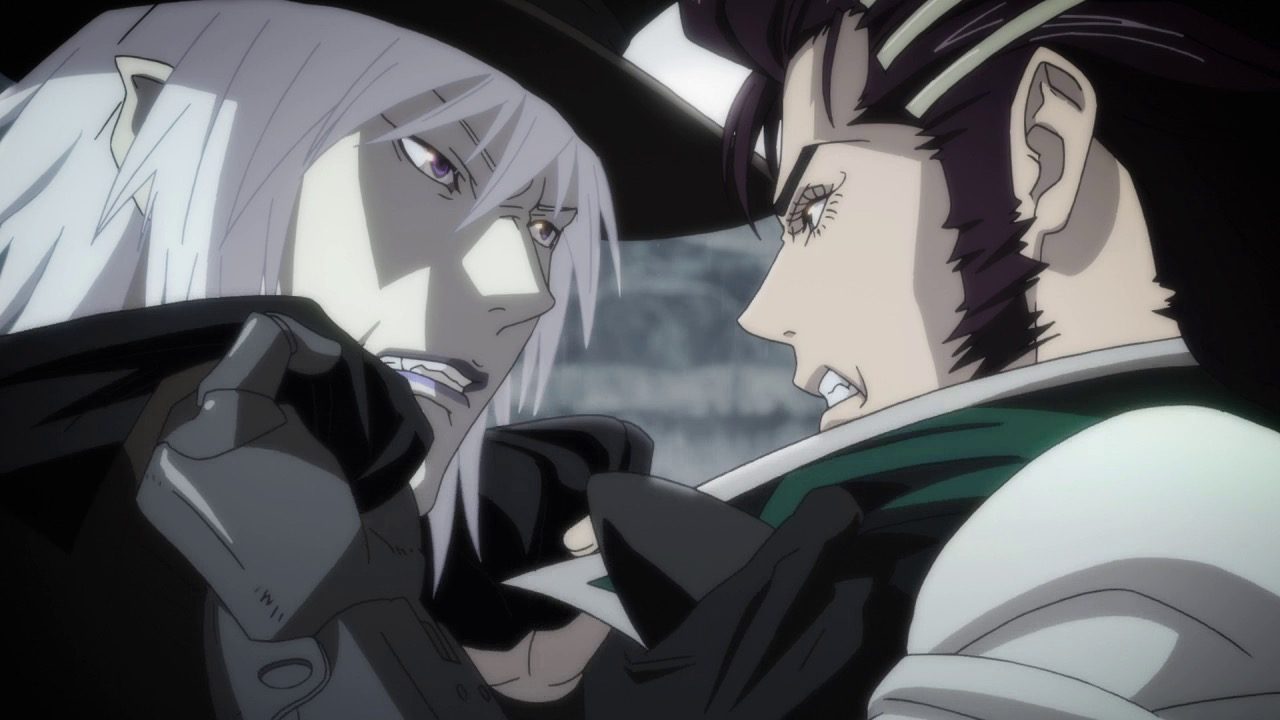
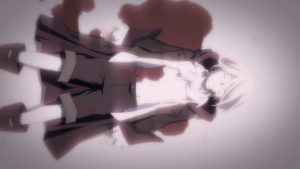
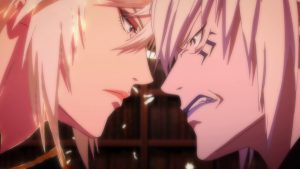
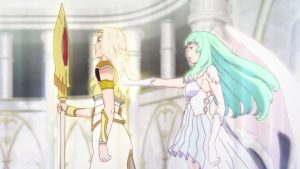
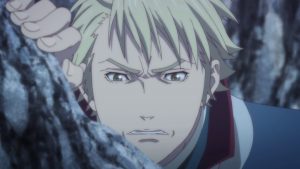
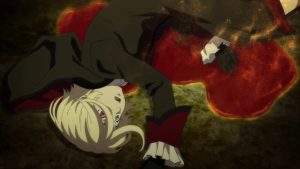
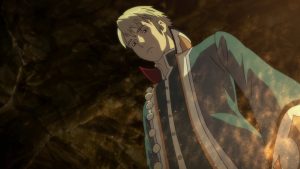
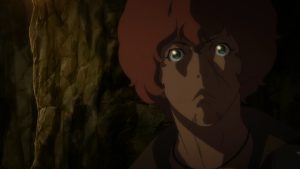
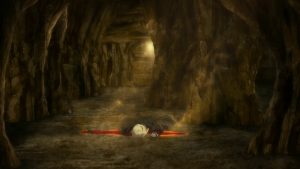
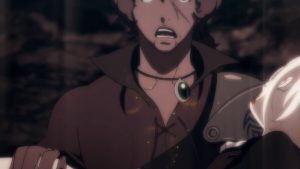
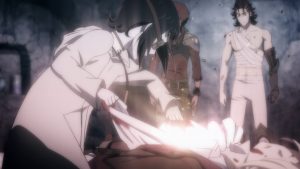
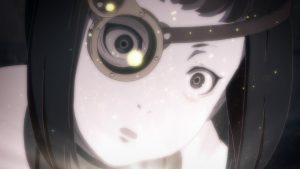
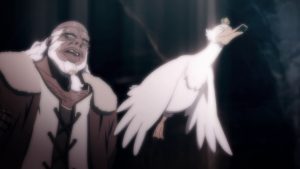
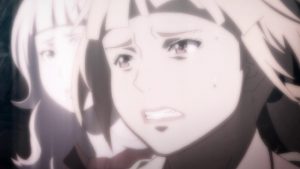
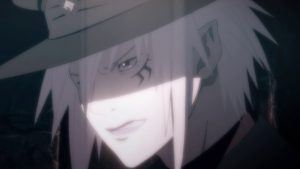
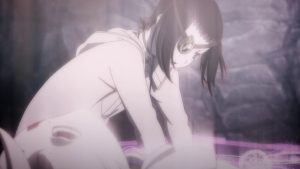
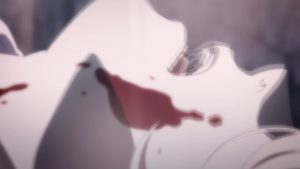
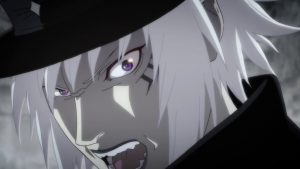
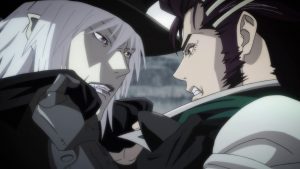
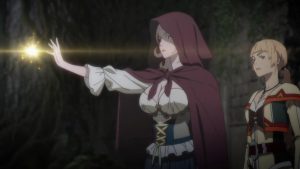
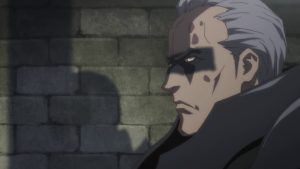
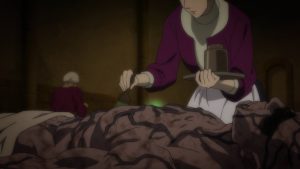
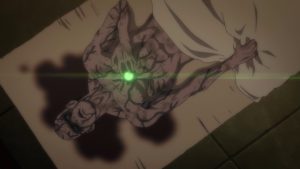
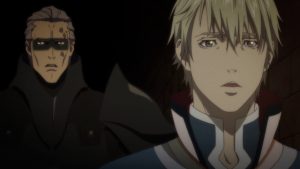
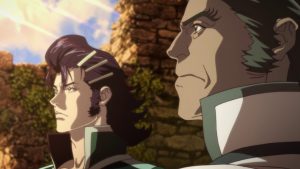
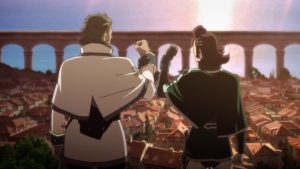
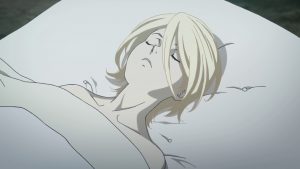
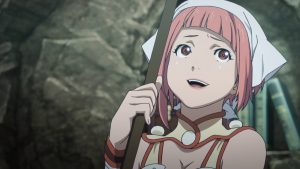
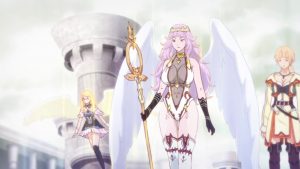
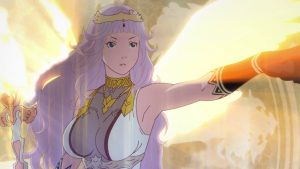
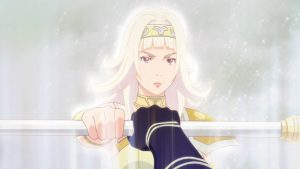
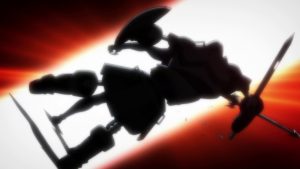

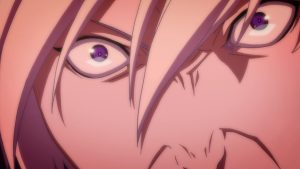
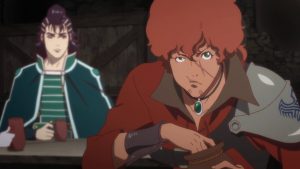
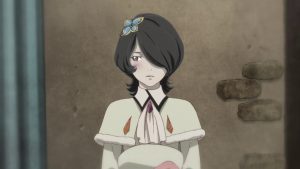
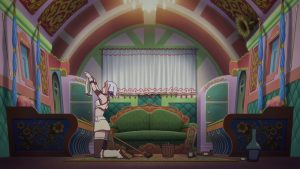
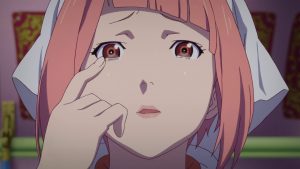
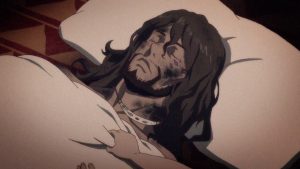
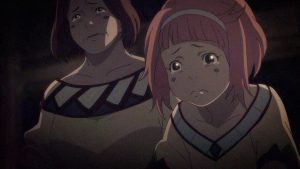
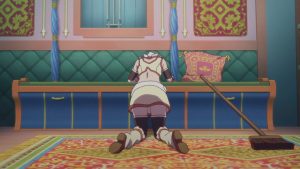
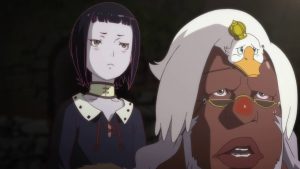
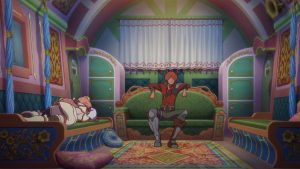
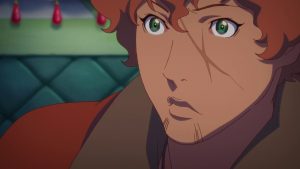
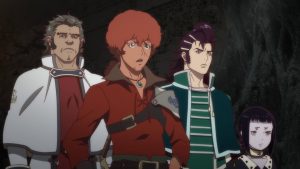
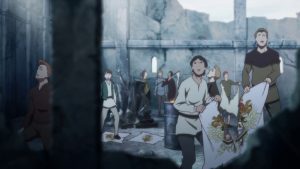
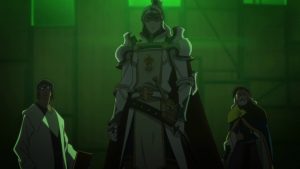
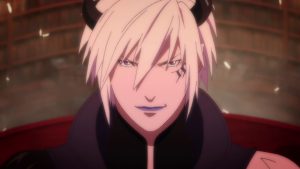
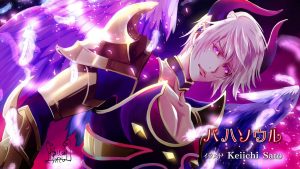
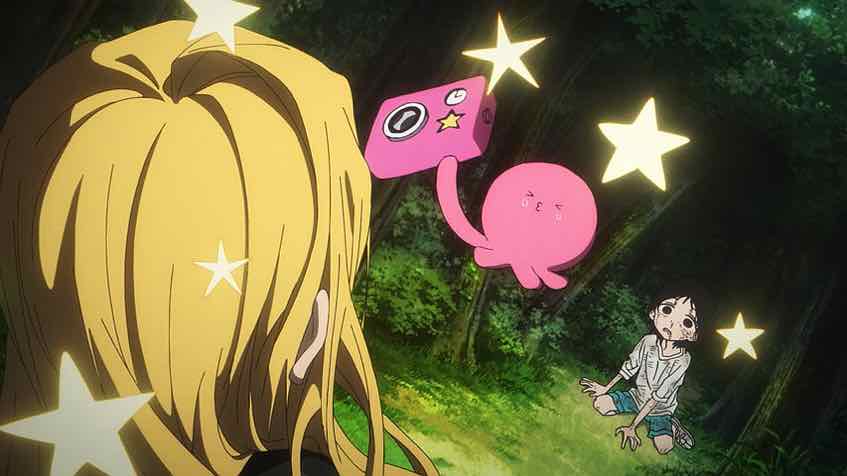
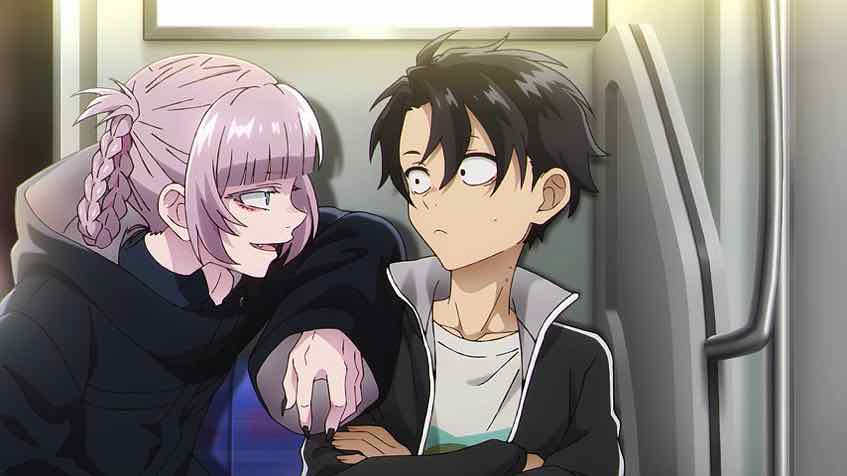
Flower
September 8, 2017 at 6:51 pmThis … now THIS is a very good example of the proverbial hitting the fan and all hell breaking loose. XD
Guardian Enzo
September 8, 2017 at 8:37 pmLiterally!
Mr Eggscelent
September 9, 2017 at 3:11 amActually Charioce character makes sense.
He hates demons because they were trying to wipe out humanity, and he hates the gods because they were using humanity to fight a proxy war.
S Hok e
September 15, 2017 at 6:16 pmThat’s right it makes sense. People went on their own conviction and he did it bcoz something triggered it. Of course the point of argument was like: he did not need to do it. However, from the latest episode, I think it’s just a consequence of his purpose. I don’t even understand people logic. Demon tortured humans by fun, no one conplained like prolonged shit. Then human can enslave demons, some jerks tortured them, people got asspull angry. They’re like applying lefties rant on freaking anime
Kurik
September 9, 2017 at 8:03 amWhile I was indeed suprised they killed El off…I don’t think it was only a plot device and his arc anticlimatic…it was pretty climatic to me really….As with real life unexpected things can occur and this seems to be the case here….If you tie in the last episode which had him thinking he was destined to bring peace and then this episode where he his destiny is now to bring war….it kinda works for me. I would be more upset now if he did come back to life. The way Nina handled the death was also made alot of sense and felt very genuine…I don’t think I have seen that in anime before. Good episode.